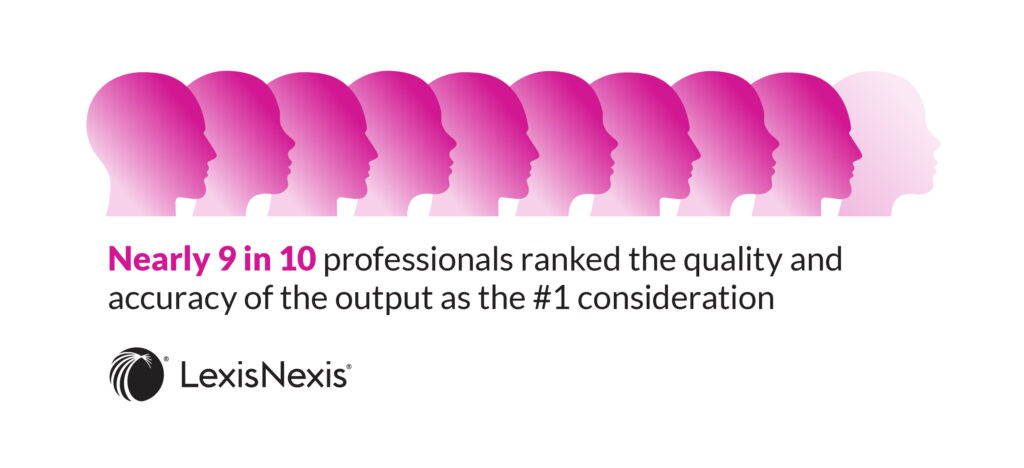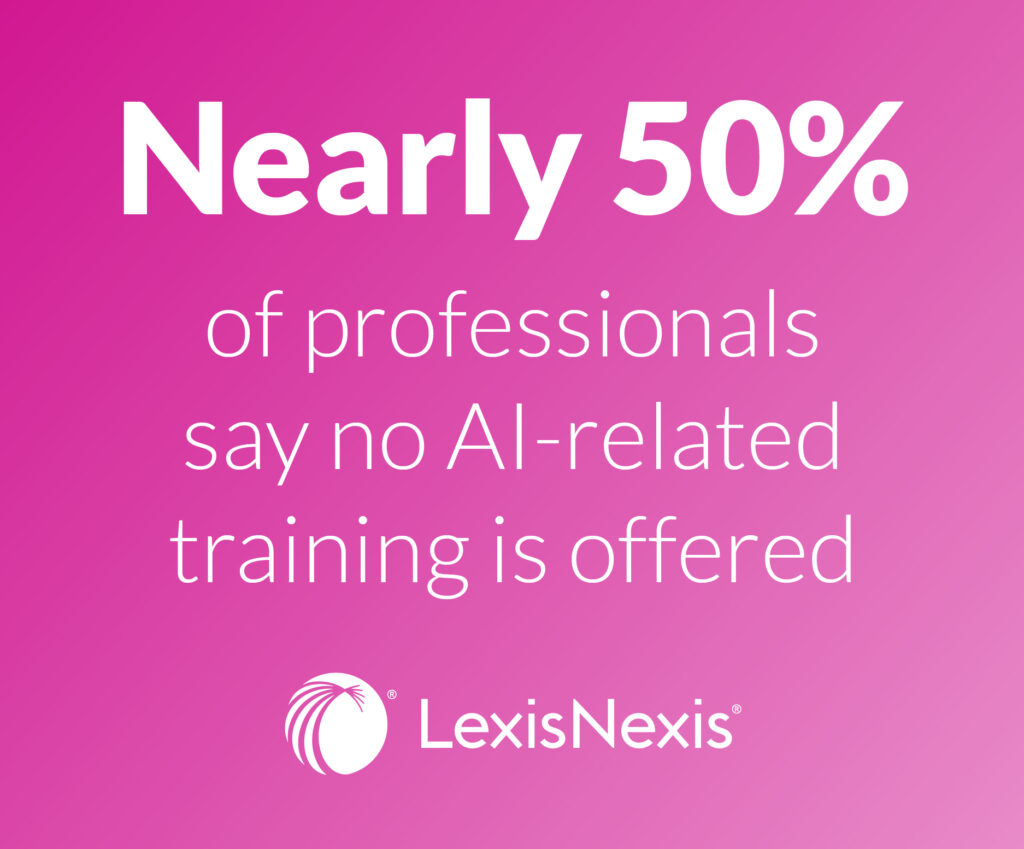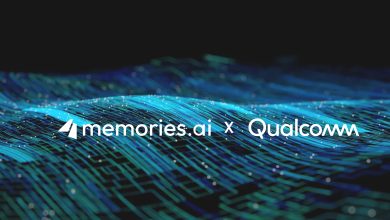
Generative AI (Gen AI) is taking the business world by storm. Like a flash, its entrance onto the digital landscape has created a massive wave of interest. Poised to generate $2.6 trillion to $4.4 trillion in value across more than 63 use cases, Gen AI has the power and potential to augment every role and impact almost every industry.
Despite the potential, the rapid rise of Gen AI within the digital landscape necessitates a pivotal shift in how organizations must operate and strategize. With ongoing questions and concerns around data accuracy, sensitive information disclosure, data provenance, AI hallucinations, and more, an overall quintessential question of trust is now at play.
Undoubtedly, organizations must address the concerns Gen AI sparks, implement guidelines and guardrails, and train employees to use Gen AI if they want to build trust and positively transform the future of work.
Address Key Concerns
Already, 94% percent of business leaders believe AI is critical to their success strategy. Why? Through powerful models and algorithms, Gen AI allows for the automation of mundane tasks and enhanced decision-making, empowering organizations to save time and rapidly improve business intelligence.
Concerns exist around the technology, however. Anxiety over job displacement due to automation, AI hallucinations, data privacy issues, and even ethical questions about algorithmic bias and decision-making transparency have created skepticism. Organizations that want to counter mistrust must acknowledge and fully understand these concerns to develop human-centric Gen AI policies that are sustainable and equitable for all stakeholders involved.
Interestingly, a recent LexisNexis Future of Work report showed concerns over Gen AI and job security may not be what previously thought. The report found that Gen AI’s threat to jobs fell near the bottom of the list, with only 39% of business professionals selecting it as a concern and only 4% seeing it as a threat to job security. Moreover, 72% of professionals anticipate a positive impact from Gen AI, suggesting a more optimistic outlook on Gen AI’s ability to augment, rather than replace, human skills.
According to the report, Gen AI accuracy is still a critical concern. Nearly 9 in 10 respondents ranked the quality and accuracy of output as the number one consideration when selecting a Gen AI tool. Forty-four percent of professionals noted they value customizability and flexibility in AI generative tools, while 63% emphasized ease of use and accessibility as ‘important.’ When looked at from a high-level view, business professionals clearly prefer tools that can adapt to a wide range of tasks and organizational needs.

Build Trust by Putting Standards and Guardrails in Place
Concerns don’t have to be a barrier to Gen AI adoption either. Organizations can build trust in Gen AI and address concerns by implementing guardrails. Guardrails can act as an organizational ally in creating a safe environment for professionals to interact with while mitigating potential risks.
Take hallucinations, for example. Ninety-seven percent of professionals say human validation of generative AI outputs is ‘extremely,’ ‘very,’ or ‘somewhat’ important. Hallucinations represent a valid concern in large language models (LLMs) and Gen AI output. Hallucinations happen when a model generates something that is not grounded in its training data or given prompt.
As a guardrail, organizations can minimize hallucinations by providing more context as part of the prompt to reduce randomness and creative license and ensure factual content. Approaches like retrieval augmented generation (RAG) are also helpful in providing models with a set of content from which to deliver an answer. Fine-tuning an LLM with domain-specific content to improve understanding of specialized topics and constantly evaluating model output to predetermined quality metrics can increase accurate output.
With so much debate around using Gen AI in the workplace and the future of work, businesses must consider additional guardrails beyond those around hallucinations. In terms of opinions on how organizations can build trust through guardrails with Gen AI, 84% of professionals say businesses need to ensure AI systems are transparent and explainable, 80% note they should conduct regular audits to identify bias and discrimination, and 69% felt businesses need to keep humans involved at every stage.
Prepare Your Employees to Succeed with Generative AI
Gen AI significantly speeds up and enhances your employees’ ability to do their jobs. By automating routine tasks and data analysis, the technology frees professionals to focus on more strategic and creative aspects of their work. Eighty-two percent of professionals currently expect Gen AI to take over a range of repetitive administrative tasks. Meanwhile, 74% are optimistic that Gen AI will positively impact their company’s overall performance. Yet nearly 50% of professionals say no AI-related training is offered.
It’s vital, then, that organizations recognize Gen AI’s ability to enhance, not replace employees’ jobs while equipping them with the skills and knowledge to interact with the technology. A proactive approach to training and education can assist employees to not only adapt but thrive, given that nearly 9 in 10 professionals believe developing new skills will be critical for keeping up with generative AI, and 73% of US companies have already adopted AI in at least some areas of their business.
How and where can organizations train employees in an environment influenced by Gen AI? Training should go hand-in-hand with professionals’ comfort levels. Professionals indicate training needs to include both ‘soft’ interpersonal skills around critical thinking and problem solving (70%), adaptability and flexibility (61%), as well as ‘hard’ technical and data-led skills such as data analysis and interpretation (64%).

Conclusion
Attitudes and perceptions toward Gen AI technologies are rapidly shifting and will continue to evolve over time. People and organizations who once viewed Gen AI with apprehension are now open to the opportunities it presents and its ability to vastly improve the workplace. Simply put, Gen AI is no longer just for the tech-savvy but is leveling the playing field and transforming the future of work for all.



